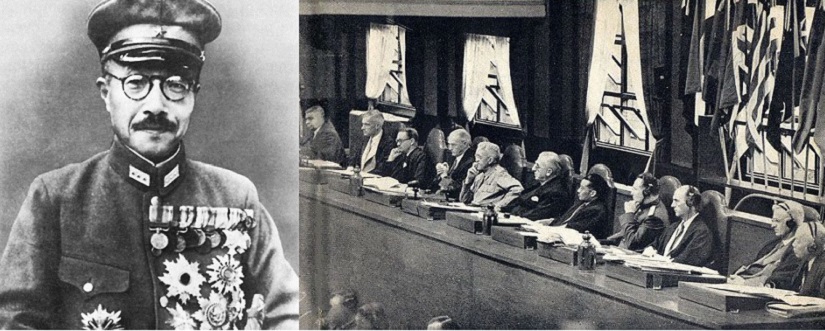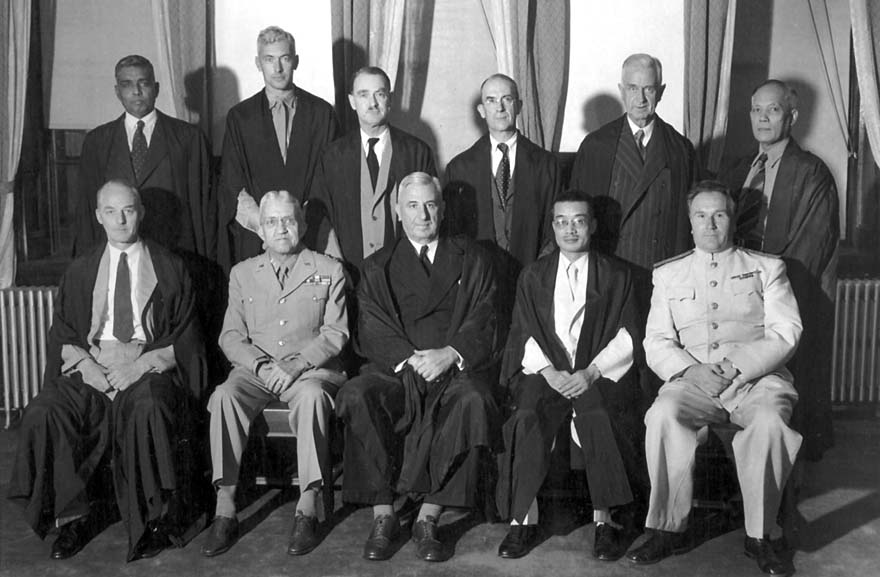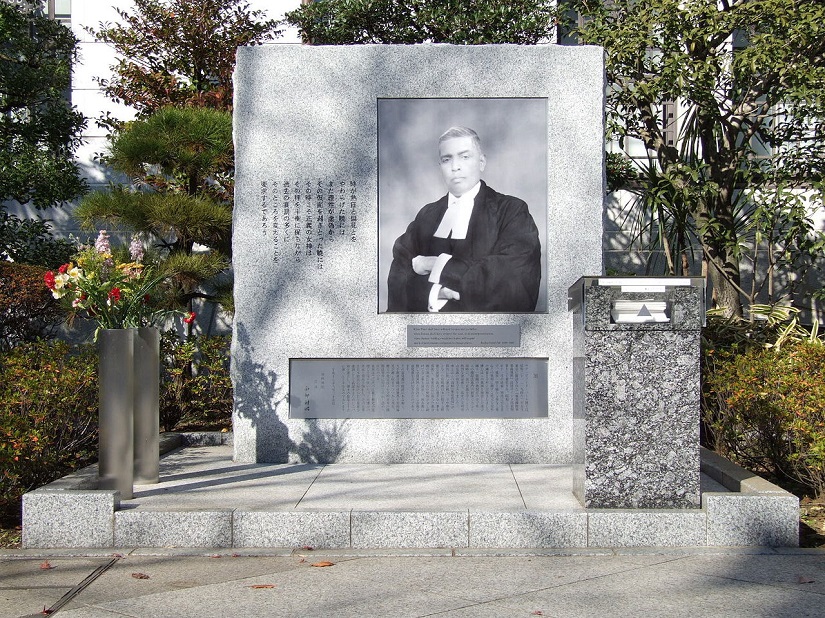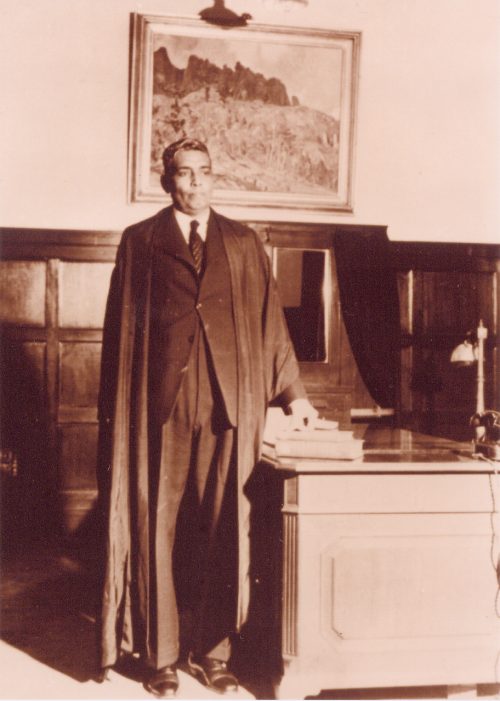Irrfan Khan’s ‘Tokyo Trial’ Tells the Intriguing Story of a Forgotten Indian Judge Honoured in Japan
While Justice Radhabinod Pal's story is remembered by fewer and fewer of his own countrymen, a grateful Japan has not forgotten his historic dissenting judgement in 1948.

Among the many monuments at Tokyo’s Yasukuni Shrine, the memorial to Japan’s war dead, there stands a simple monument dedicated to a forgotten Indian judge, Judge Radhabinod Pal.
Pal, played by Irrfan Khan in a four-part Netflix miniseries Tokyo Trial, is deeply revered by the Japanese people because of his stance during the infamous war crime trials that took place in Japan after World War II (called the Tokyo Trials).
Here is the story of this forgotten Indian judge who showed exemplary courage in telling the world that in a war, there is no ‘good side’.

The World War II had ended in utter destruction for Japan in 1945. The Allies had set up a tribunal to try high-ranking political and military leaders in Germany and Japan as war criminals.
For the Tokyo Trials (the others held in Germany were called the Nuremberg Trials), 11 judges from Allied nations were selected by the International Military Tribunal for the Far East (IMFTE) and called to Tokyo to deliberate the fate of suspects.
The Tokyo trials began on May 3, 1946, with the majority of the 28 trial suspects being members of Japanese Prime Minister Hideki Tojo’s war cabinet, and lasted two and a half years. After the hearings were completed by 1948, the judges met for days to discuss their opinions about the same.
On November 12, 1948, the 25 (of the 28, one was declared mentally unfit, and two died during the trial) suspects were tried, indicted and sentenced to death on 55 counts of Class-A (crimes against peace) war crimes.
One judge after another announced their verdict as “Guilty”, until a voice thundered, “Not Guilty!”, plunging the courtroom into a shocked silence. That voice of dissent belonged to Radhabinod Pal, then a distinguished judge of the Calcutta High Court and vice-chancellor of the University of Calcutta.

(L-R) General Tojo. The Panel of Judges during the Tokyo Trials
Pal’s participation in the war tribunal was result of the tireless efforts of Girja Shankar Bajpai, Agent General for India in Washington DC (he would later become independent India’s first Secretary-General in the Ministry of External Affairs). While the initial plan had been that only the countries that had signed Japan’s surrender would send judges, Bajpai insisted that India should be allowed to send a judge too as Indian soldiers had fought as well as been war victims in WWII.
After long debates between Bajpai and the US Department of State, it was agreed that India would send a judge to the tribunal. As Bajpai said later that with this, he had “claimed for India a footing of equality”. When the colonial government contacted High Courts around the country for the same, Pal responded first and was thus sent to Tokyo for the trials.
From the very beginning of the trial, Pal insisted on carving out his own legal point of view about the subject of the trial. As an Indian nationalist who strongly sympathized with the freedom struggle in India, he saw things very differently from the other judges.

Judges of the IMTFE, Tokyo, Japan, 1946-1948. Back Row (Left to Right): Radhabinod Pal-India, B.V.A. Roling-Netherlands, Edward Stuart McDougall-Canada, Henri Bernard-France, Harvey Northcroft-New Zealand, and Delfin Jaranilla-Philippines. Front Row (Left to Right): Lord Patrick-UK, MG Cramer-U.S. Replaced US judge John P. Higgins in July 1946, Sir William Webb-Australia, Ju-ao Mei-China, and MG I.M. Zarayanov-Soviet Union (Russia).
Pal believed that in the name of creating an order of international criminal justice, the trial was an effort by the Allied Powers to proclaim themselves as righteous victors against the vanquished ‘evil’ Japanese, and use this moral subjugation to legitimize their hegemony over Asia.
In a long dissent note, Pal wrote that “in colonizing parts of Asia, Japan had merely aped the Western powers and that the charges of crimes against peace and humanity were a sham employment of legal process for the satisfaction of a thirst for revenge.”
However, at the same time, he was very hard on Japan and fully acknowledged Japanese war atrocities (such as the Nanjing massacre) but said that they should have been considered as Class B (war crimes) and Class C (crimes against humanity) instead of Class A.
Pal also pointedly criticized the atomic bombings of Hiroshima and Nagasaki by USA and compared them with Nazi crimes.
Thus, Pal’s dissent was not because he wanted to exonerate Japanese war atrocities but because he believed that the deeply flawed Tokyo Trials were incapable of passing a just sentence.
Pal further believed that the international community at the time did not possess the level of detached impartiality or sophistication to declare war a crime. In the conclusion to his dissent, he quoted the following lines by Jefferson Davis (these lines are also engraved on his memorial):
“When Time shall have softened passion and prejudice, when Reason shall have stripped the mask from misrepresentation, then Justice, holding evenly her scales, will require much of past censure and praise to change places.”

It must also be remembered that Pal was born in 1886 in Bengal (when India was still very much a British colony) and had lived through the partition of Bengal in 1905 by the British Viceroy, Lord Curzon. His distaste for colonial violence was further strengthened by the Jallianwala Bagh massacre in April 1919 when a crowd of nonviolent protesters were fired upon by troops under the command of Colonel Dyer.
Pal’s dissenting judgment at the Tokyo Trials was a hugely controversial document. While his detractors criticised him for being something of an apologist for Japanese war criminals, his champions appreciated his courage and fairness in giving a pioneering anti-colonial judgment.
“For us, we were extremely grateful for Judge Pal’s presence — there was no other foreigner who said so clearly that Japan wasn’t the only country that had done wrong,” said Hideaki Kase, chairman of the Japan-India Goodwill Association, in an interview to the New York Times.
After the Tokyo Trials, Pal was elected to the UN International Law Commission, where he served illustriously from 1952 to 1966. He passed away on January 10,1967, at the ripe old age of 80.

While Pal’s story is remembered by fewer and fewer of his own countrymen, a grateful Japan has not forgotten this principled Indian judge. Several books have been published in praise of him in the country and in 2007, NHK (Japanese public broadcaster) also released a 55-minute documentary based on his life.
In 1966, the Emperor of Japan conferred on Pal the First Class of the Order of the Sacred Treasures, Japan’s greatest civilian honour. His name is also mentioned frequently by both Indian and Japanese diplomats in the context of Indo-Japanese friendship and solidarity.
Also Read: How a Japanese and Indian Team of Engineers Came Together to Trace the Missing Dolphins of Ganga
For instance, in 2005, Indian Prime Minister Manmohan Singh said the following words at a banquet in honour of the visiting Japanese Prime Minister Junichiro Koizumi:
“The dissenting judgement of Justice Radhabinod Pal is well-known to the Japanese people and will always symbolise the affection and regard India has for your country.”
In 2007, when Japanese Prime Minister Shinzo Abe visited India, he too paid the following tribute to Pal in a speech to the Indian Parliament, before travelling to Kolkata to meet the judge’s son.
“Justice Pal is highly respected even today by many Japanese for the noble spirit of courage he exhibited during the International Military Tribunal for the Far East.”
Those who would like to know more about Radhabinod Pal can visit the judge’s family residence at 16 F, Dover lane in south Kolkata. As per the will of Pal’s son, it has been converted into a museum that houses documents, articles, photographs and journals written by Pal himself dating back to the historic dissenting judgment at the Tokyo Trials.
Also Read: Revered by Africans, This Indian-Origin Icon Dedicated His Life to Fighting Racism and Inequality
Like this story? Or have something to share? Write to us: [email protected], or connect with us on Facebook and Twitter.
NEW: Click here to get positive news on WhatsApp!
If you found our stories insightful, informative, or even just enjoyable, we invite you to consider making a voluntary payment to support the work we do at The Better India. Your contribution helps us continue producing quality content that educates, inspires, and drives positive change.
Choose one of the payment options below for your contribution-
By paying for the stories you value, you directly contribute to sustaining our efforts focused on making a difference in the world. Together, let’s ensure that impactful stories continue to be told and shared, enriching lives and communities alike.
Thank you for your support. Here are some frequently asked questions you might find helpful to know why you are contributing?


This story made me
-
97
-
121
-
89
-
167











